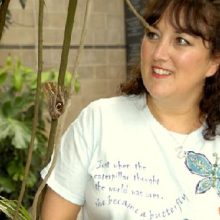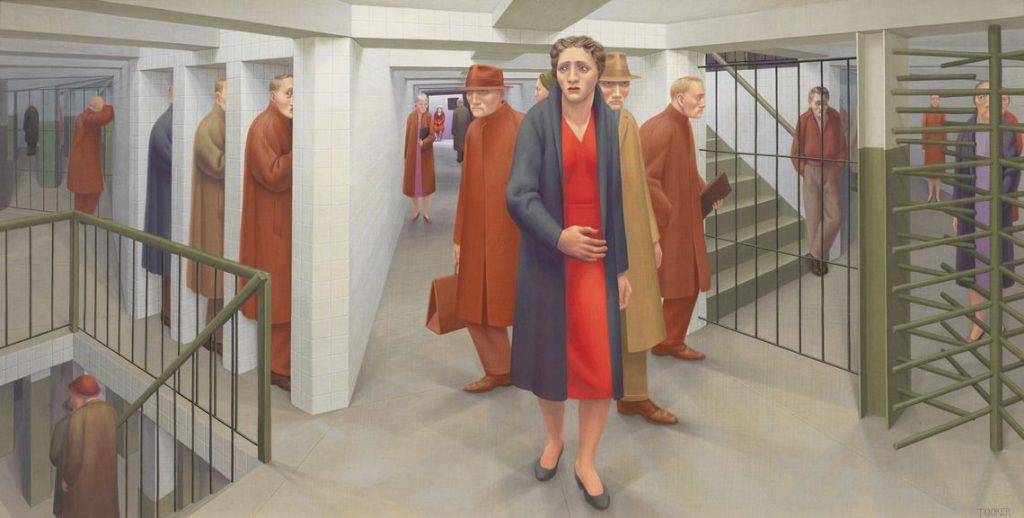
Subway, 1950, by George Tooker
There are times when the anguish and disorder of life dominates our awareness. Life seems messy and unpleasant, and the chill of a nameless dread steals over us. We feel ourselves an inadequate, neglectful part of the messy unpleasantness, a flimsy plastic shopping bag overstuffed with worry and unlived life, ready to come apart at the seams.

Painting by my father, Nathan Zap. Although not a professional painter, and his technique is obviously primitive especially compared to George Tooker, my father’s paintings (at least to me) capture such similar feelings of anxiety and alienation. When I looked up Tooker I was amazed to see how closely contemporary they were in both time and place. George Tooker, Brooklyn, 1920-2011, Nathan Zap, Bronx, 1919-2012. See Nocturnal Visions, the Paintings of Nathan Zap
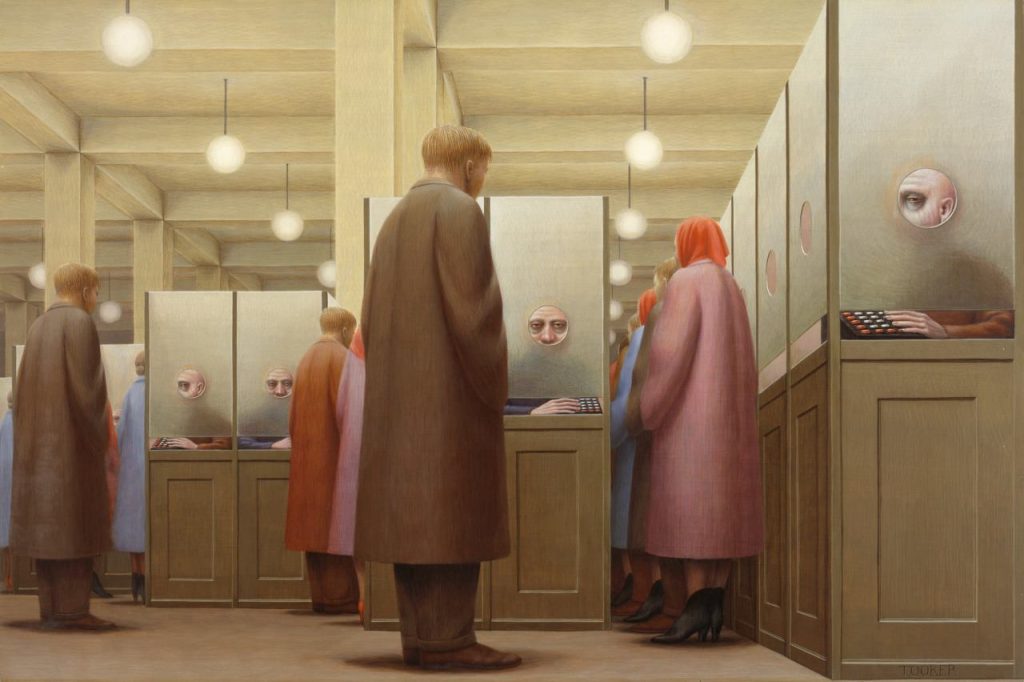
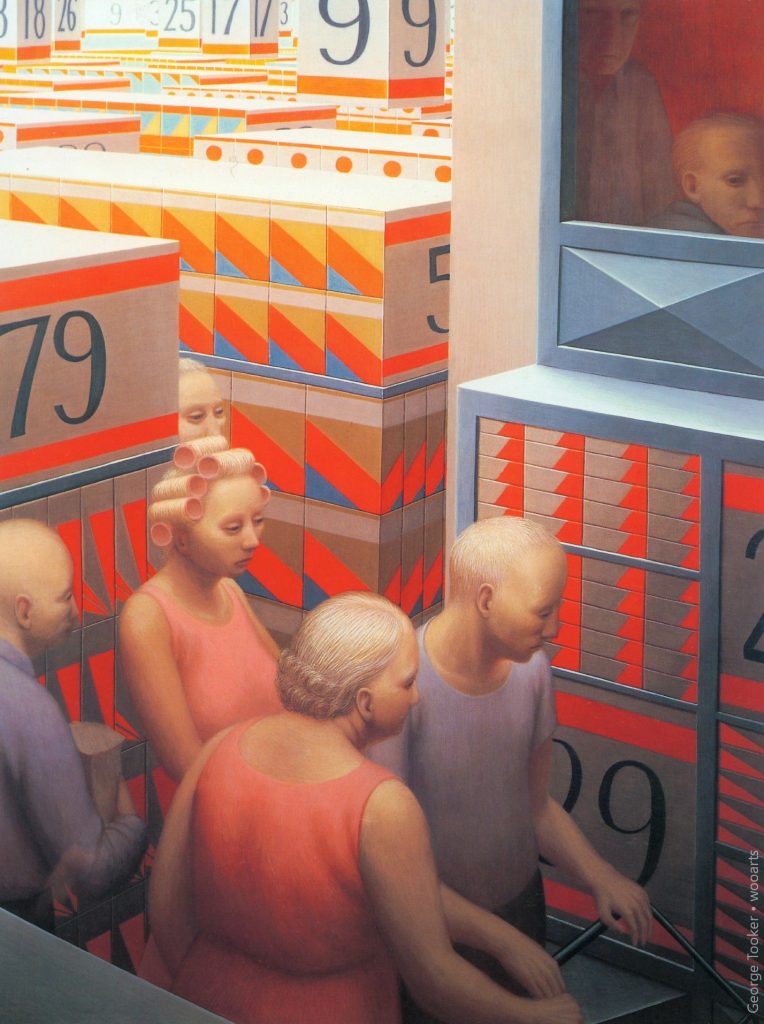
How can we live with such feelings? Begin by being aware of them from a place of neutral, mindful observation. Anxiety ebbs and flows, rises and falls, it has a lifecycle, and one practice is to observe the lifecycle, see when it is intensifying, when it is peaking, and when it is withdrawing or becoming quiescent. Don’t fuse and confuse the anxiety with any particular trigger events that seem to bring it forward. Have you felt such a feeling before the present circumstance existed? You certainly have and should, therefore, disentangle the human phenomenon of anxiety with the worry de jour.
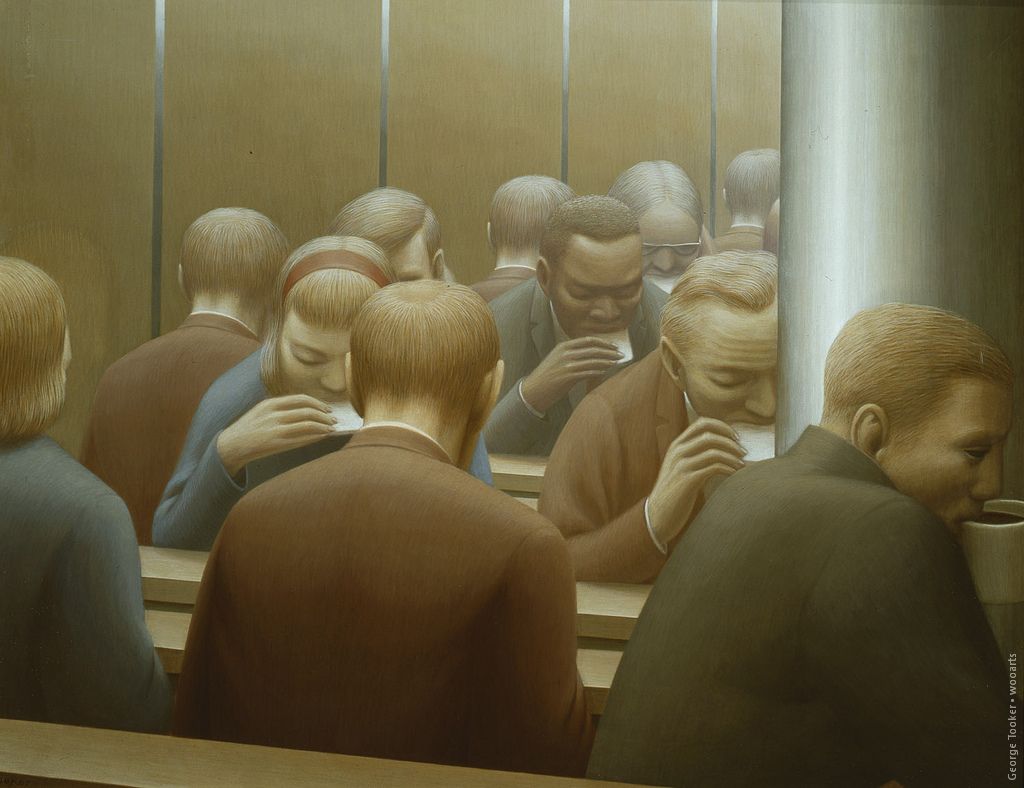
The deepest source of anxiety may be a sense of unlived life. Rollo May defined anxiety as “Being asserting itself against nonbeing.” Anxiety can be the spiritual version of pain, and pain can be life-preserving.
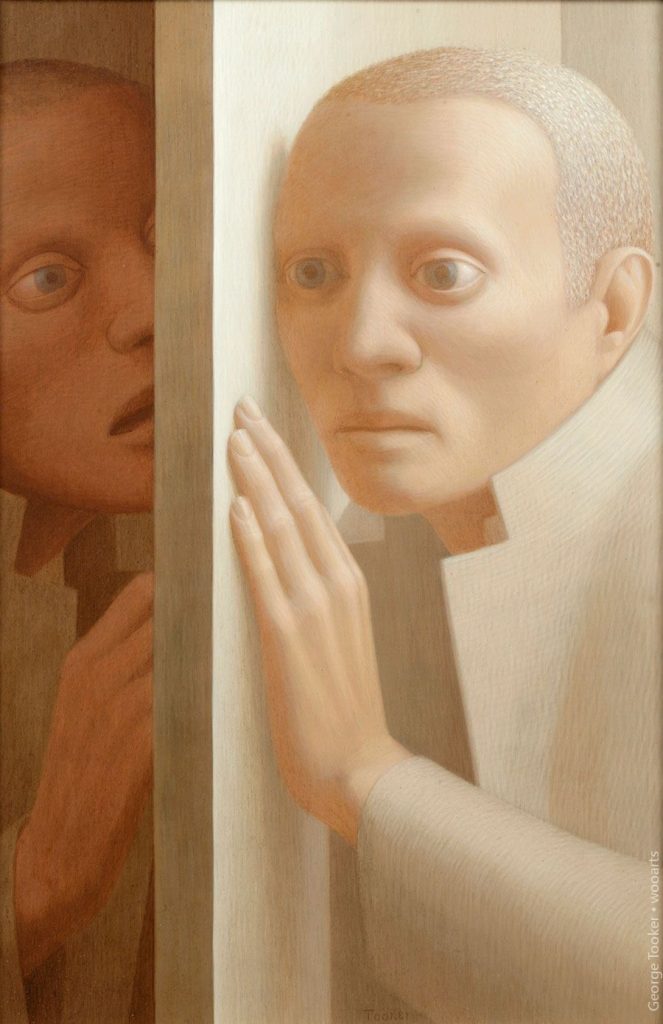
Sometimes, we need to honor and listen to the anxiety because it gives voice to unlived life and other aspects of our shadow. While journalling, call the anxiety to step into the spotlight of your attention and speak or even personify itself as a character. Do not, however, allow anxiety to cause looping negative thoughts gnawing away at you in the background. See: Dealing with Psychic Entropy
One in 25,000 babies are born with a CIP, Congenital Insensitivity to Pain, a neurological disorder where they cannot feel pain. Their lives are in constant danger — they have to wear gloves and helmets to minimize unconscious injuries and healthy tissue inevitably is destroyed by lack of sensation.
Anxiety should not be medicated into numbness. You may need to be in touch with the part of you that feels constricted and neglected to know where to focus healing and transformation.
In other cases, anxiety may arise like a change in the weather — its source may be inscrutable, and the best way to deal with the anxiety is to engage life and immerse yourself in the best use of your time right now. Monitor the anxiety with mindfulness and notice how well you function despite the anxiety. If you can’t function well, downshift into simpler, more mechanical tasks like house cleaning or laundry. Don’t let the anxiety paralyze you and make you passive — that only increases the dread. Don’t feel anxiety about having anxiety, as so many in our society do. Take constructive action. Just do the best you can today between now and bedtime. If it feels bad enough, stop for a moment and pray for the healing of yourself and all other beings who are similarly afflicted. You are not the only one in this nervous and unsettled world struggling to live with anxiety.
See:
Dealing with Zones of Inner Jeopardy
With the following, you can substitute the word “anxiety” for the parallel word “fear.”
The Litany Against Fear
I must not fear.
Fear is the mind-killer.
Fear is the little-death that brings total obliteration.
I will face my fear.
I will permit it to pass over me and through me.
And when it has gone past I will turn the inner eye to see its path.
Where the fear has gone there will be nothing.
Only I will remain.
The Bene Gesserit Litany Against Fear – From Frank Herbert’s Dune Book Series
© 1965 and 1984 Frank Herbert
Published by Putnam Pub Group
ISBN: 0399128964
See: An Antidote to Worry
See also “Dealing with Afflictive Thoughts and Feelings” in A Guide to the Perplexed Interdimensional Traveler for more on the way anxiety works and specific techniques for transforming afflictive thoughts and feelings.
A number of the sections of my book The Capsule of Intentionality deal with facing the difficulty of human incarnation.
Also very relevant:
The Way of the Warrior
Warrior Quotes
The Taoist Path
Taoist Quotes
Awakening from Depression
Adhesions and the Timelines of the Unconscious
Finally, if you feel strongly that the anxiety is coming from a source other than yourself, explore the Mind Parasite category of the writing section on this site.
 ZapOracle.com home to the free 720-card Zap Oracle
ZapOracle.com home to the free 720-card Zap Oracle




